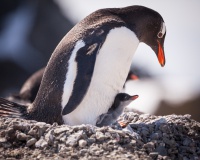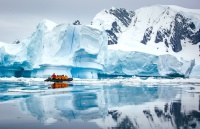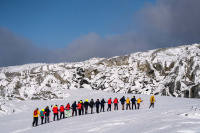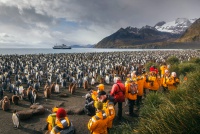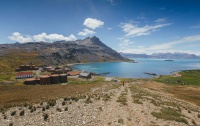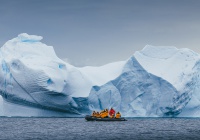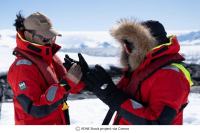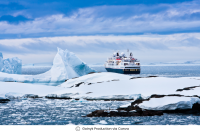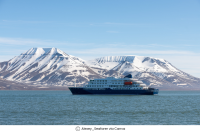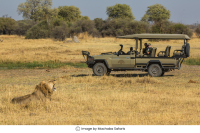-
Travel to Antarctica - Whale Watching Guide in the Falkland Islands
When embarking on a trip to Antarctica, the Falkland Islands offer a unique and unforgettable opportunity for whale watching. This remote archipelago, with its rich marine life and stunning landscapes, serves as a prime location to witness some of the world's most majestic creatures in their natural habitat. Here’s a guide to make the most of your whale-watching experience in the Falklands.
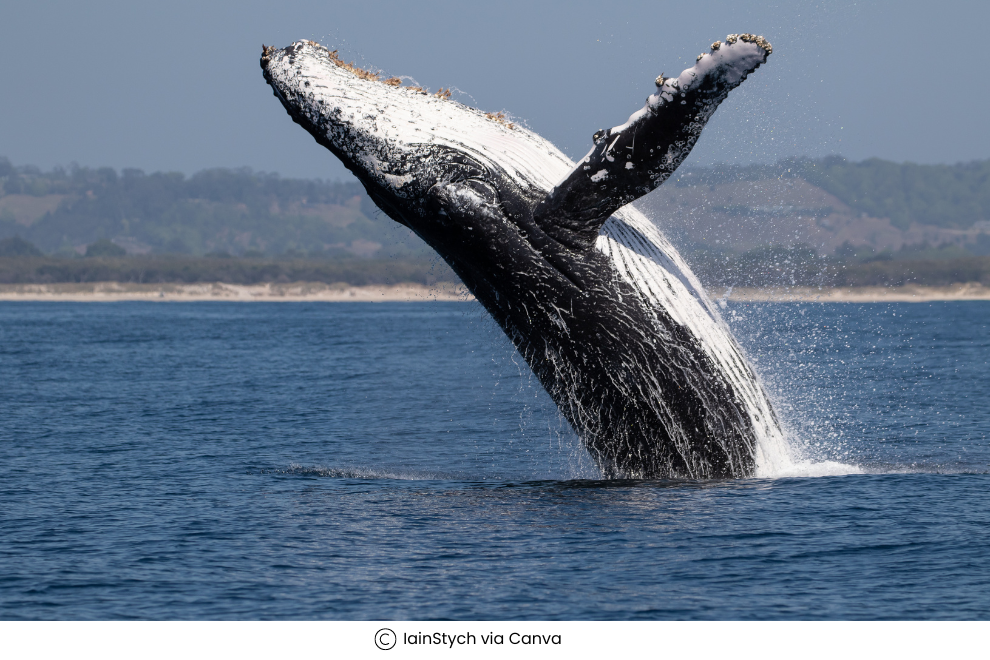
Why the Falkland Islands?
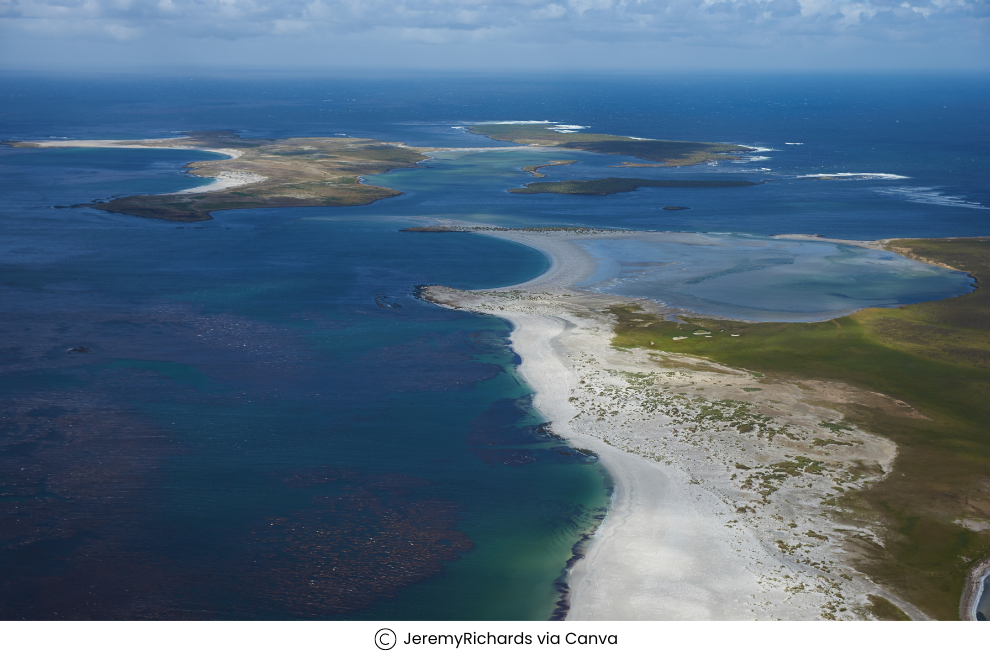
Being a convergent point of nutrient-rich currents, forming an abundant and diverse ecosystem, the Falklands, located on the edge of the Southern Ocean is a hotspot for marine life. The waters here are filled with krill, plankton, and other vital food sources, which attracts a variety of marine species, including a variety of whales. This is also an ideal spot for breeding and feeding. Additionally, the islands' isolation and relatively untouched environment provide a safe haven for these giants of the sea.
Whale Migration Patterns
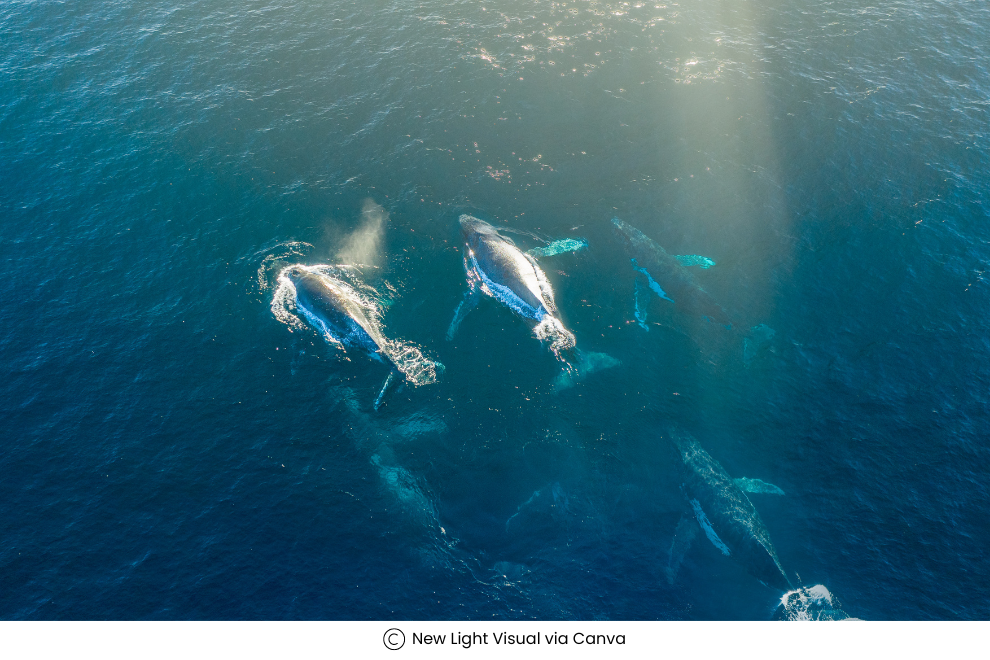
The Falkland Islands are a crucial part of the migratory route for several whale species. During the austral summer, from October to March, whales migrate from the colder Antarctic waters to the relatively warmer seas around the Falklands. This migration is driven primarily by the need to find abundant food sources and suitable breeding grounds.
Here’s more about their migration patterns:
Name of the Whale
Behavior During Migration
Where to Spot Them
Feeding Grounds (Summer)
Breeding Grounds (Winter)
Humpback Whale
Long migrations; perform acrobatic breaches, known for complex songs.
Antarctic Peninsula, Drake Passage
Southern Ocean, particularly the Ross Sea, Weddell Sea
Waters off Brazil, Colombia, and the Great Barrier Reef
Blue Whale
Slow and steady migration; generally solitary or in small groups.
Antarctic Peninsula, Scotia Sea
Southern Ocean, near the Antarctic Circumpolar Current
Waters off Madagascar, Western Australia, and the Galápagos Islands
Fin Whale
Fast swimmers, tend to migrate in pairs or small groups.
South Georgia, South Sandwich Islands
Southern Ocean, around the Antarctic Polar Front
Gulf of California, Mediterranean Sea, and Indian Ocean
Minke Whale
Shorter migrations; often seen close to pack ice.
Ross Sea, Weddell Sea
Southern Ocean, near the Antarctic ice edge and Ross Sea
Coastal waters off South Africa, South America, and New Zealand
Sei Whale
Long migrations; typically stay further offshore.
Scotia Sea, South Georgia
Southern Ocean, in the Scotia Sea and Drake Passage
Waters off Brazil, West Africa, and the Caribbean Sea
Southern Right Whale
Slow and deliberate migration; often seen with calves.
Falkland Islands, South Georgia
Southern Ocean, around South Georgia and the Falkland Islands
Waters off Argentina's Valdés Peninsula, South Africa, and southern Australia
Orca (Killer Whale)
Less predictable; some populations are resident, others migratory.
Antarctic Peninsula, Ross Sea
Southern Ocean, around the Antarctic Peninsula, Ross Sea
Coastal waters of New Zealand, Patagonia, and South Africa
Best Time to Visit Antarctica for Whale Watching
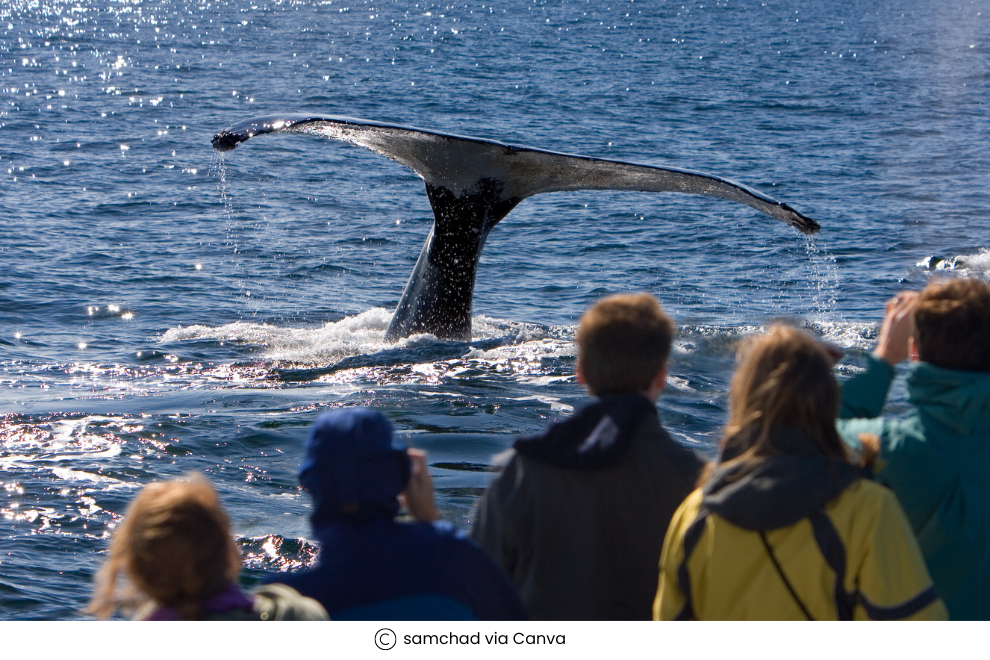
The prime whale-watching season in the Falkland Islands is during the austral summer, from October to March. This period coincides with the whales' migration patterns, where they move towards the warmer waters of the Southern Hemisphere. During these months, you're likely to spot species like the Humpback Whale, Sei Whale, Southern Right Whale, and even the majestic Blue Whale.
How to Experience Whale Watching
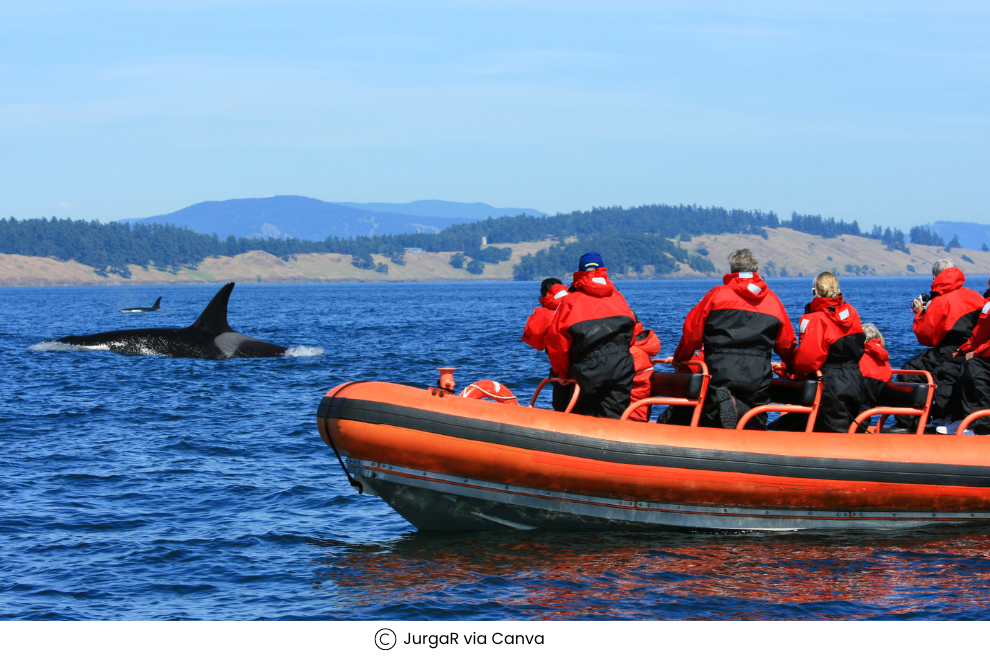
- Zodiac Boat Tours: Several operators offer guided whale-watching boat tours from the main islands. These tours are led by knowledgeable guides who understand the best spots for sightings and can provide insights into whale behavior.
- Land-Based Viewing: If you prefer to stay on solid ground, there are several vantage points around the islands where you can watch whales from shore. Lookouts on East and West Falkland, as well as Sea Lion Island, provide excellent views.
- Kayaking: For a more adventurous experience, consider a kayaking tour. Paddling in the waters around the islands offers a unique and close-up view of the whales. It’s an unforgettable way to connect with these magnificent creatures.
What to Bring
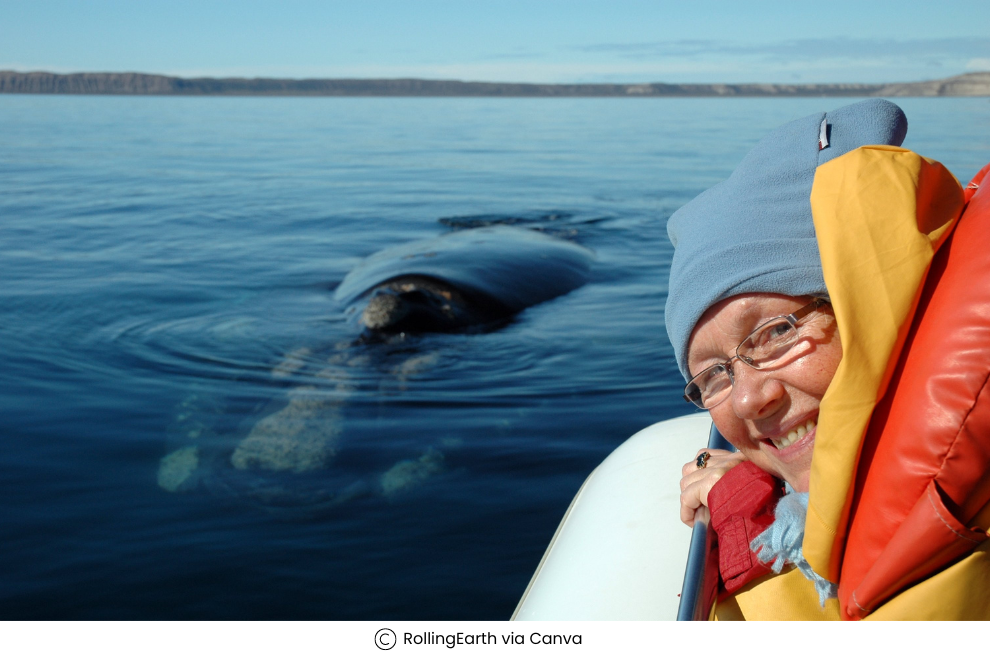
- Binoculars: While many whale sightings are close to shore, having a good pair of binoculars will enhance your experience, allowing you to see the whales in more detail.
- Camera: A camera with a good zoom lens is essential for capturing the moment. The Falklands’ unpredictable weather means you should also bring a waterproof case.
- Warm Clothing: Despite it being summer, the Falklands can be chilly, especially out on the water. Layering is key, and don’t forget a windproof jacket and a hat.
IAATO and Conservation in the Falkland Islands
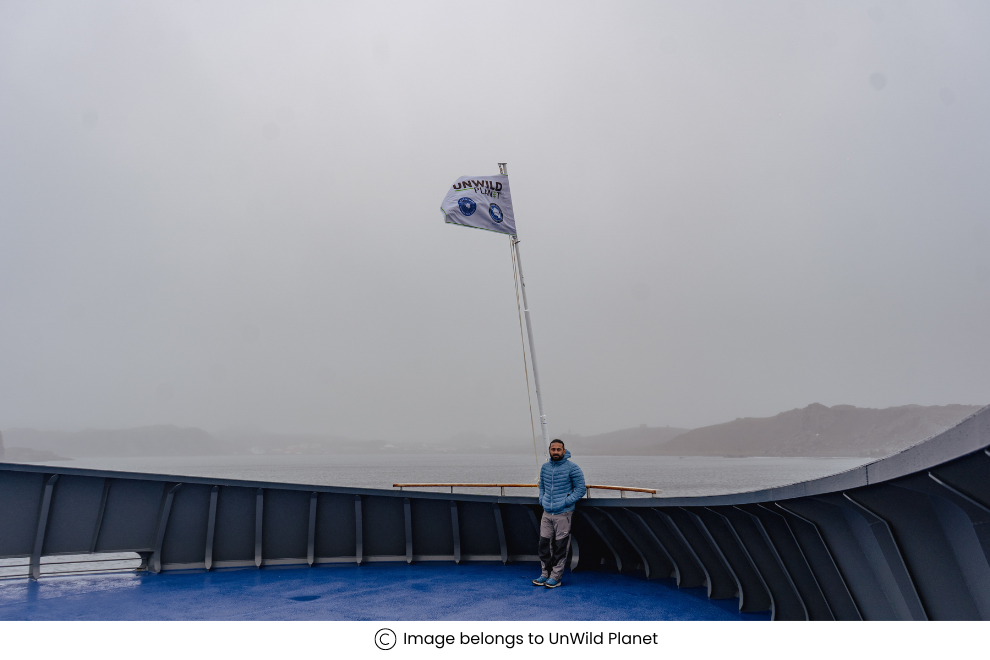
The International Association of Antarctica Tour Operators (IAATO) plays a crucial role in promoting responsible tourism in the Southern Ocean and Antarctic regions, including the Falkland Islands. IAATO’s guidelines are designed to minimize the impact of tourism on the delicate ecosystems of these areas. Their efforts include:
- Education and Awareness: IAATO ensures that tourists visiting the Falkland Islands are educated on the importance of marine conservation and the need to respect wildlife.
- Sustainable Tourism Practices: IAATO members adhere to strict codes of conduct that limit human impact on the environment, such as maintaining safe distances from wildlife and reducing pollution.
- Support for Scientific Research: IAATO collaborates with researchers to gather data on whale populations and the broader marine ecosystem, contributing to conservation efforts.
As the only IAATO approved luxury brand in India, Unwild Planet mandatorily follows these guidelines and makes conscious efforts in reducing carbon footprint by our travellers through sustainable practices. It is extremely important to choose the right Antarctica tour operator, considering the destination and its ecosystem to be fragile.
Beyond Whale Watching
While the whales are undoubtedly the stars of the show, the Falkland Islands offer much more. The islands are home to vast colonies of penguins, including the King, Gentoo, and Magellanic species. There are also opportunities to see elephant seals, sea lions, and an incredible array of birdlife. Click here to read more about the wildlife encounters in Antarctica!
Ready to embark on your next adventure? Fill out the form below and let our experts curate your dream getaway!
All Fields are mandatory*-
Related Tours
-
Recent Blogs
